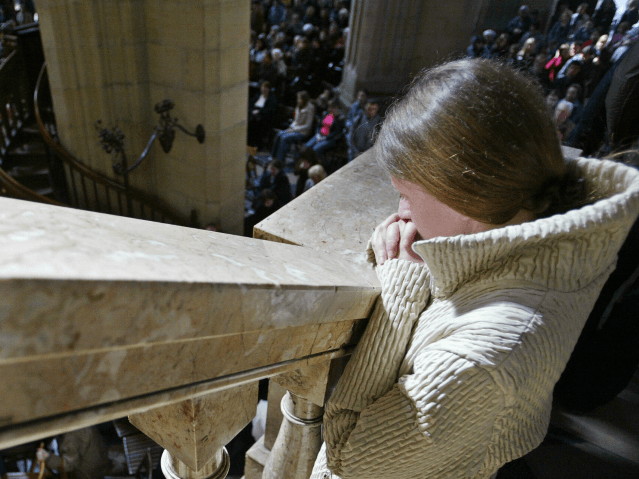Despite a precipitous decline in church membership and participation, the German Catholic Church took in a record $7.1 billion in tax revenues during the year 2017, according to reports from German media.
As Breitbart News reported earlier this year, the progressive Catholic Church in Germany has continued hemorrhaging members year after year, losing more than 160,000 of the faithful in 2016 alone.
Since 1996, the official Catholic population in Germany has fallen sharply from 27,533,000 to 23,582,000 members—a decline of over 14 percent. Sunday Mass attendance continues to decline as well, with 10.2 percent attending Mass regularly in 2016 versus 10.4 percent in 2015.
The number of Catholic parishes has followed a similar trajectory. Over the past two decades, the Church has closed nearly a quarter of its parishes (over 3,000), with the number declining from 13,329 to 10,280.
Although nearly every indicator suggests that the German Catholic Church is in freefall, one marker has stubbornly resisted the trend: the Church’s wealth.
An investigative report published by the Handelsblatt newspaper this week revealed that the church collected a record $7.1 billion (€6 billion) in tax revenue last year, despite falling membership and dwindling participation in the sacraments.
The German government considers every baptized person to be a church taxpayer and collects a levy of 8 to 9 percent from the income of all registered church members, regardless of their actual participation. The church tax goes back to the 1919 Weimar Constitution, which was incorporated word for word into Germany’s current constitution after World War II.
If baptized German citizens wish to be exempt from the church tax (Kirchensteuer) they must formally disassociate themselves from the church by signing state documents to this effect. Nevertheless, those who fail to pay can no longer receive communion or other sacraments, according to regulations issued by the German Bishops’ Conference.
According to one analysis, there are two chief causes behind the erosion of the Catholic faith in Germany, one financial and the other doctrinal.
In his article titled “The Bleeding German Church,” Vatican journalist Marco Tosatti noted that the close alliance between church and state, with believers paying the special church tax, has undoubtedly contributed to the problem.
The second cause of German defection from the Church has been a progressive trend away from traditional Christian belief toward a liberal position often associated with mainline Protestantism, Tosatti said.
As a body, the German Church has become known as one of the most progressive in the world, a trend that has made the Church ever more irrelevant for many.
A 2016 academic study found that churches that embrace conservative theology tend to draw more adherents than those that have fallen into liberalism.
The Canadian study, published in the Review of Religious Research, found that successful churches “held more firmly to the traditional beliefs of Christianity and were more diligent in things like prayer and Bible reading”.
The Church in Germany is the second largest employer in the country, with only the government employing more people. Many Church employees are non-believers, and the Church’s considerable institutional presence influences people’s rapport with it, tending to create a more formal, and sometimes utilitarian, relationship.
In 2015, Pope Francis sharply criticized the German bishops, taking them to task for the decline of the Catholic faith in the country.
Noting the “drastic drop in Sunday Mass attendance” as well as a comparable decline in vocations to the priesthood, church marriages and sacramental confession, Francis said that the situation of the faith in Germany is dire.
“When we take all these facts into account,” Francis said, “we can speak of a true erosion of the Catholic faith in Germany.”
The Pope called on the bishops to remedy the situation by re-introducing people to the Eucharist and Confession, embracing the new evangelization, strengthening the role of priests, and committing to the protection of unborn life.
Follow Thomas D. Williams on Twitter Follow @tdwilliamsrome

COMMENTS
Please let us know if you're having issues with commenting.